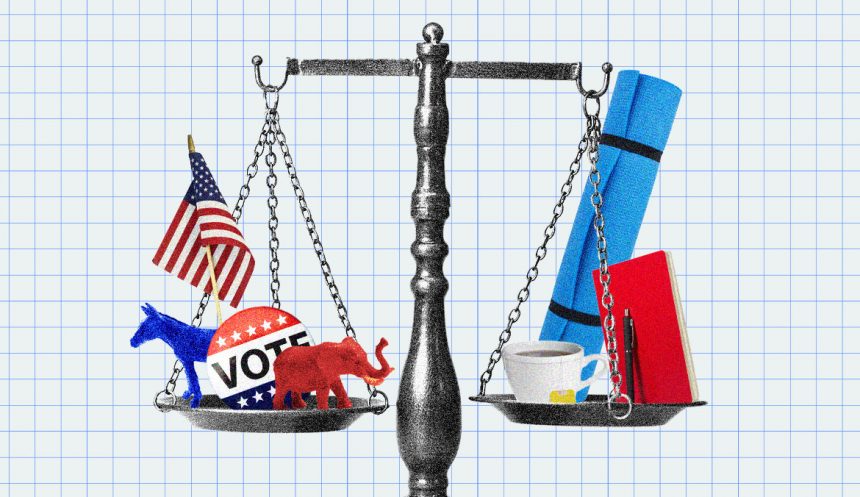No matter where you stand politically, election years can be overwhelming. A February 2024 Pew Research Center survey found that 65 percent of Americans often feel exhausted when thinking about politics, while 55 percent feel angry. Dr. Brett Ford, an associate professor of psychology at the University of Toronto, explains that the uncertainty of not knowing who the next president will be adds to this discomfort.
To stay engaged without sacrificing your well-being, it’s important to manage your media consumption and take steps to actively participate in democracy. This election cycle, with its dramatic twists and turns, has added to the stress levels of many. Social media, while providing a wealth of information, can also contribute to heightened emotions due to its focus on outrage content.
Setting boundaries with media consumption is crucial to prevent emotional overload. Seek out high-quality sources and limit exposure to inflammatory content. Consider keeping your bedroom phone-free and establishing time limits on news and social media apps to prevent getting caught up in a harmful cycle.
Getting involved in political action can help combat election-driven stress by providing a sense of efficacy and empowerment. Whether it’s making a voting plan, donating to a cause, or reaching out to local representatives, taking small steps can make a difference. Focusing on local issues and activism can also lead to tangible results and a sense of accomplishment.
Ultimately, finding a balance between staying informed and protecting your mental health is key during election years. By setting boundaries, getting involved in meaningful ways, and focusing on local impact, you can navigate the challenges of the political landscape with greater resilience.






